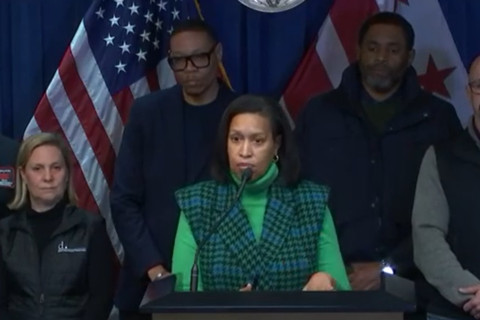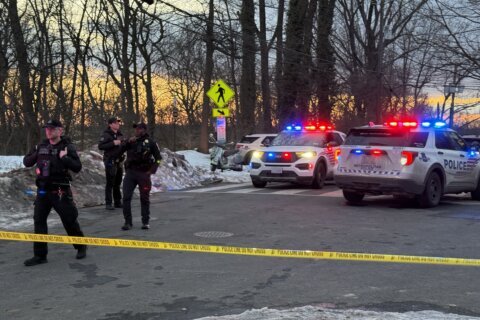D.C. Mayor Muriel Bowser has declared a public emergency over two issues facing the nation’s capital. The first is a dramatic spike in juvenile crime and the second addresses the evolving opioid crisis.
Bowser said the emergency declaration is designed to help the government spend money quicker to secure resources needed to address both problems.
“I see this, as most emergencies are, as an administrative tool,” Bowser said. “Largely, it will help us in a contracting aspect. It could impact how we deploy personnel but, mostly, it’s a contracting vehicle.”
Emergency over youth crime
When it comes to tackling juvenile crime, the goal is to procure more beds at youth shelter homes around the city. Right now, juveniles who are arrested can be sent to the D.C. Youth Services Center, essentially a jail-like facility in Northeast, released to parental supervision, or assigned to a bed at what’s referred to as a shelter home, where kids are supervised to an extent, but are still free to see family and friends and go to school.
A shortage of those types of beds was the subject of a court hearing earlier Monday morning, where lawyers representing a teenage girl pressed for a judge to hold the city in civil contempt because of a lack of shelter beds.
In this case, the teen girl had been locked up at the D.C. Youth Services Center for five days — even though she was supposed to be released to a shelter home — because all eight beds set aside for girls were in use. Eventually, she was released to home custody, but during the hearing it was revealed the girl was routinely violating the terms of her release and was ordered back to a shelter facility where there’s now room for her.
Soon, there will be even more room. As the judge considered holding the city in contempt, Sam Abed, the acting director of D.C.’s Youth Rehabilitation Services said the city was working to increase capacity by as many as 24 beds in the coming weeks. Other District-owned facilities were also going to be renovated to add even more space to detain youths following their arrest.
“We have not had an issue with girls shelter capacity until October,” Abed said at the news conference announcing the public emergency Monday afternoon. “We are going to have additional girls capacity.”
At the moment there are no girls on the waitlist for shelter housing. He said that wasn’t the case prior to October, either.
Judge Andrea Hertzfield continued the hearing over the contempt issue to December, giving city leaders three weeks to show progress on its efforts in securing more shelter space — a timeline the city suggested it would be meeting. Abed said the goal was to have contracts ready to sign on Dec. 1.
“We do need space for boys and girls,” Abed told the judge.
Lawyers for the teen girl asking the city to be held in contempt said her being held at the D.C. Youth Services Center, instead of in a shelter, was a violation of her rights and of judicial orders. They were seeking restitution of $549 per night she had been locked up.
Lawyers from the D.C. Attorney General’s Office argued restitution was only to be afforded for a demonstrated loss of something and that in this case there was no evidence of any actual losses.
Addressing an evolving opioid crisis
The public emergency issued by Bowser is also being used to help the city better address the changing opioid crisis.
In 2022, the city said 96% of overdose deaths involved fentanyl and similar synthetic opioids.
“We have too many people dying in our city related to fentanyl overdoses,” Bowser said.
The city’s Department of Behavioral Health, health department and the Fire and Emergency Medical Services Department have an agreement to share data on things such as overdose numbers. The order would allow that agreement to be modified so that agencies must report nonfatal overdoses in addition to fatal overdoses.
“Having a common data tracking system will give us a better picture of the opioid use and the effects in the District,” said Ciana Creighton, interim deputy mayor for Health and Human Services.
While the real-time information will not be publicly available, that data will be available to government agencies. The goal, Creighton said, is being able to use that information to deploy outreach teams to areas identified as being hot spots for opioid overdose. Those teams, which will include people who have overcome substance abuse themselves, will steer people in need to programs that can help fight their addictions.
“While there’s a lot of variance with the opioid epidemic, what we do know is harm reduction saves lives,” Creighton said.









